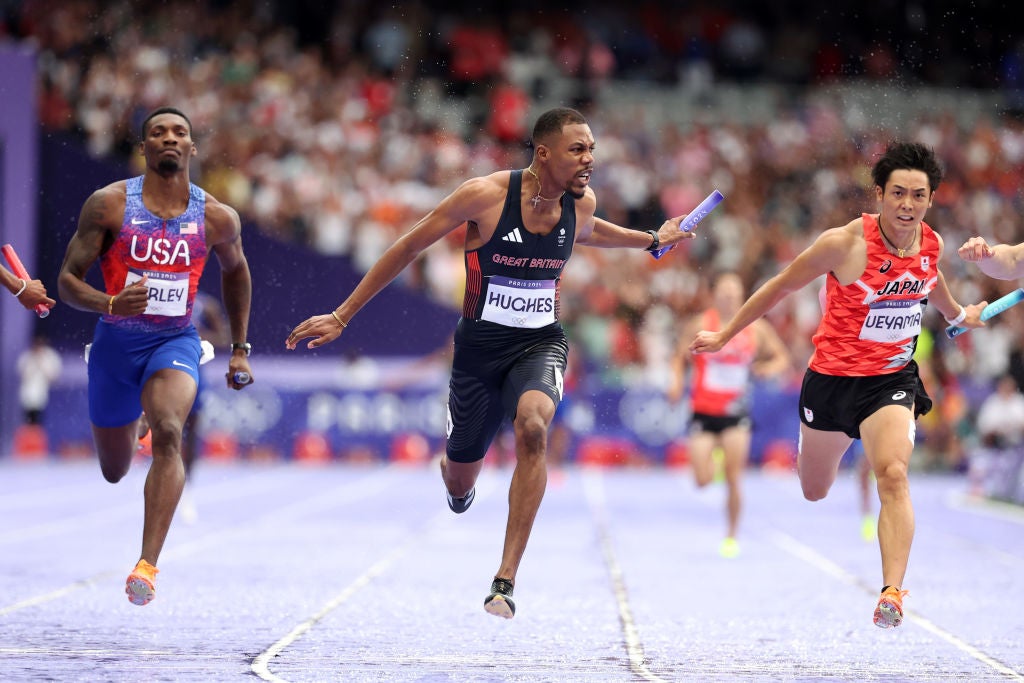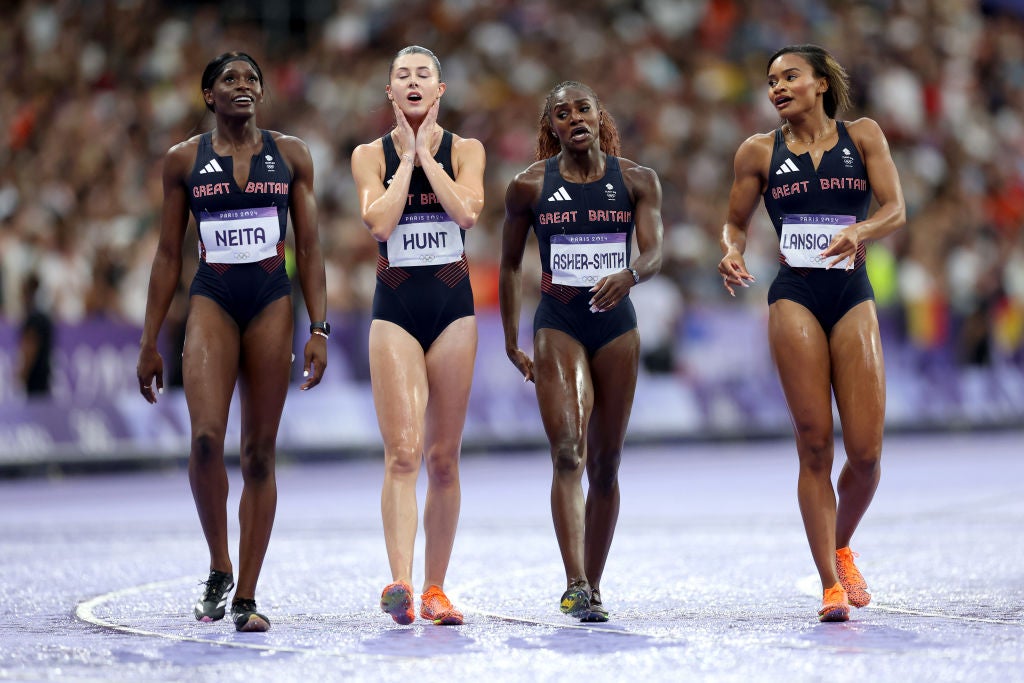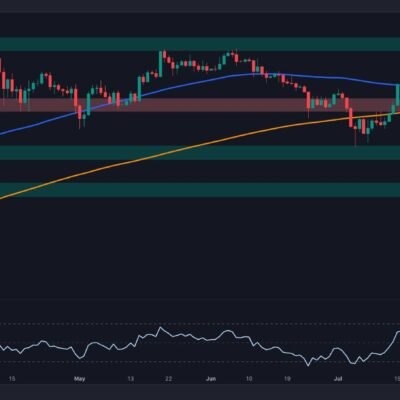At last, a medal in Paris for Dina Asher-Smith and Daryll Neita, but did the Olympics gold that has evaded both slip through their grasp at a rain-soaked Stade de France?
As a lightning track was turned greasy by a sudden, dramatic downpour and the relay baton turned perilously slippy, Great Britain upgraded the bronze medal won three years ago in Tokyo and turned it into silver, their best result in the women’s 4x100m relay in 68 years. Up ahead, Sha’Carri Richardson roared to gold for the United States while shooting the most lingering of looks towards Neita as she crossed the line.
Flash back to the start and Asher-Smith had given Team GB an excellent start in the outside lane, running brilliantly out of the blocks to surge into an early lead. Imani Lansiquot continued her momentum but the following two baton changes may have proved costly. Lansiquot stalled passing to Amy Hunt, and then Neita spent an age with her arm outstretched approaching the final straight.
“No frustrations at all,” Neita said. “It’s a relay and anything can happen and in amongst all the chaos we remained professional, got the job done and got the baton round.
“That’s what it’s all about because it’s a relay and anything can happen, it’s really not guaranteed. We came in in a really strong position and we left with a medal and I think we should be really proud of ourselves.”
Neita’s burst over the final 100m may have saved a medal, but it was not enough to catch Richardson – an Olympic champion at last after her surprise defeat to Julien Alfred in the 100m final.
The USA’s joy turned into disaster, however, in the men’s 4x100m relay as Christian Coleman crashed into the back of Kenny Bendarek on the opening change, taking the favourites out of contention immediately before they were later disqualified. It opened the door to an outsider and Canada took full advantage. Andre de Grasse led a stirring charge for gold on the final straight ahead of a jubilant South Africa and Great Britain, with Zharnel Hughes roaring Team GB into medal position on the anchor leg.

The men’s relay team had their silver medal stripped from Tokyo after CJ Ujah failed a doping test, but Paris finally delivered an Olympic medal for Hughes, who was part of the quartet denied by Ujah’s violation. Hughes was sensational in taking Great Britain from sixth into third following legs from Jeremiah Azu, Louie Hinchliffe and Nethaneel Mitchell-Blake.
Hinchliffe, who was in the lane next to the chaos involving the USA, was sparkling over the back straight. “You could see it was a really messy race but we gave all of it,” he said. “It was all heart, all pure speed and we gave 110 per cent. You could see how much we wanted it and we got the result so it’s great.”
But bronze in the men’s relay perhaps should have followed gold for in the women’s race. Paris had been a difficult Olympics for Asher-Smith and Neita, Team GB’s two biggest sprinting stars.

Asher-Smith failed to reach the 100m final and was fourth in the 200m final, missing out on the podium by 0.01s, Neita was fourth in the 100m and fifth in the 200m, falling short on both occasions by less than 0.05s. Both Asher-Smith and Neita had already won bronze in the 4x100m in Rio and Tokyo. Silver was an upgrade, but it could have been more.
Elsewhere, Amber Anning lowered the British record to 49:29 in the women’s 400m final but finished fifth as Marileidy Paulino of the Dominican Republic won gold in an Olympic record. Eilish McColgan was 15th in the 10,000m in a season’s best 31:20.51 as Kenya’s Beatrice Chebet took gold and Sifan Hissan claimed bronze.






